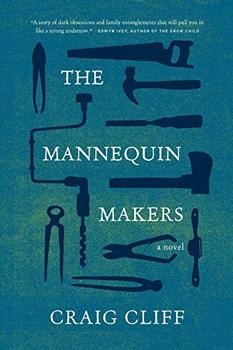Summary | Excerpt | Reading Guide | Reviews | Beyond the book | Read-Alikes | Genres & Themes | Author Bio

Two girls sit in the backseat of a car, tied at the wrist. They are teen sisters, Amity and Sorrow. They share the memory of screaming and fire, and the longing to return home, as their mother drives them away from everything the girls have ever known. Later, at a farm abutting an abandoned service station, the three seek help from a farmer who lives there with his elderly father and a boy named Dust. All this – just in the first ten pages!
We soon learn that Amaranth, the girls' mother, is the first of fifty wives and has been living in a religious community off the grid in the panhandle of Idaho. The community, headed by a charismatic patriarch preacher, Zachariah, has spent the past decade and a half preparing for the end of the world. Amaranth, who had been lost, homeless and an alcoholic at age seventeen, was "saved" by and married to Zachariah, at nineteen. Having only been a part of this religious community, her daughters, Amity and Sorrow, know nothing of the modern world. They don't know towns, they've never heard of television or computers. They don't know where they've come from or where they are; they've never seen a map. They don't even know how to read. They've been raised to be wives. They live by strict rules: No talking to men or boys. No stepping inside any man's house. Cover your hair at all times. It is forbidden to go into a field—the patriarch's rule accepted with no explanation. It isn't until later in the story that the dark origins of this rule are revealed.
Amity, the younger daughter, believes their leaving, their rule-breaking, will finally bring on the end of the world. For her part, Sorrow will not forgive their mother for taking her away from her father. She believes she is the chosen one, the Oracle - that God sends her and only her, signs of what he wants. But while Sorrow can be proud, cruel, and condemning, loyal only to her father and to God, Amity is curious and hopeful and loyal beyond reason to her sister.
Chapters seamlessly alternate between Amaranth, Amity and Sorrow's points of view, toggling between the past and present. Written in spare lyrical prose, the compelling story unfolds as a mystery, giving readers just enough information about what has happened to keep us fascinated. The chapters set in the past show us glimpses of a dystopia founded on extreme faith. The further into the novel we get, the more we sense the presence of evil, with references to Jonestown and Waco and parallels to David Berg and The Family. We are reminded that when rules are made and enforced for the sole convenience and benefit of the leader over his followers, the result is an oppressive nightmare.
Riley manages to lay this all out without ever coming off as didactic or preachy - on the contrary, all the characters are presented with compassion and richly drawn. They are complex beings, all struggling with the choices they must make and the consequences they must face. I was especially struck by the many intricately woven relationships filled with conflict: mother-daughter; sister-sister; husband-wife; father-daughter; the sisterhood of wives. We see what comes of relationships built on lies and false hopes – and what happens when it all unravels. Amaranth, for one, realizes that all that she'd bought into and accepted must be broken down and separated like wheat from the chaff, in order to survive outside the small, strict, religious compound. Before they fled, Sorrow was to become wife fifty-one, married to her own father. Amaranth struggles with the weight of her guilt for raising her daughters in ignorance, and knows she must break the rules she has lived by all of her adult life. She must make herself useful in order to stay on the farm where she and her daughters have landed.
Despite Amaranth's efforts, Sorrow does everything in her power to get back to her father. She creates a temple in the service station bathroom and waits for a sign that will guide her home and back to the community, while Amity, loyal to a fault, defers to her sister and keeps her secrets.
In the end, each memorable character makes a life-altering choice, leaving readers breathless and heartbroken but ultimately satisfied. Amity and Sorrow is a highly fulfilling read about mothers and daughters, the nature of family, the complexity of relationships, of faith lost and found, of courage and new beginnings. I think women might enjoy this story more easily than men, but I would recommend this book for any adult who enjoys good storytelling, complex, well-drawn characters, and exquisite, lyrical writing.
![]() This review was originally published in The BookBrowse Review in April 2013, and has been updated for the
February 2014 edition.
Click here to go to this issue.
This review was originally published in The BookBrowse Review in April 2013, and has been updated for the
February 2014 edition.
Click here to go to this issue.

If you liked Amity & Sorrow, try these:

by Craig Cliff
Published 2017
Playfully literate and strikingly original, an unforgettable debut novel about art, imitation, and obsession.

by Emma Donoghue
Published 2017
In Emma Donoghue's latest masterpiece, an English nurse brought to a small Irish village to observe what appears to be a miracle - a girl said to have survived without food for months - soon finds herself fighting to save the child's life.
Your guide toexceptional books
BookBrowse seeks out and recommends the best in contemporary fiction and nonfiction—books that not only engage and entertain but also deepen our understanding of ourselves and the world around us.